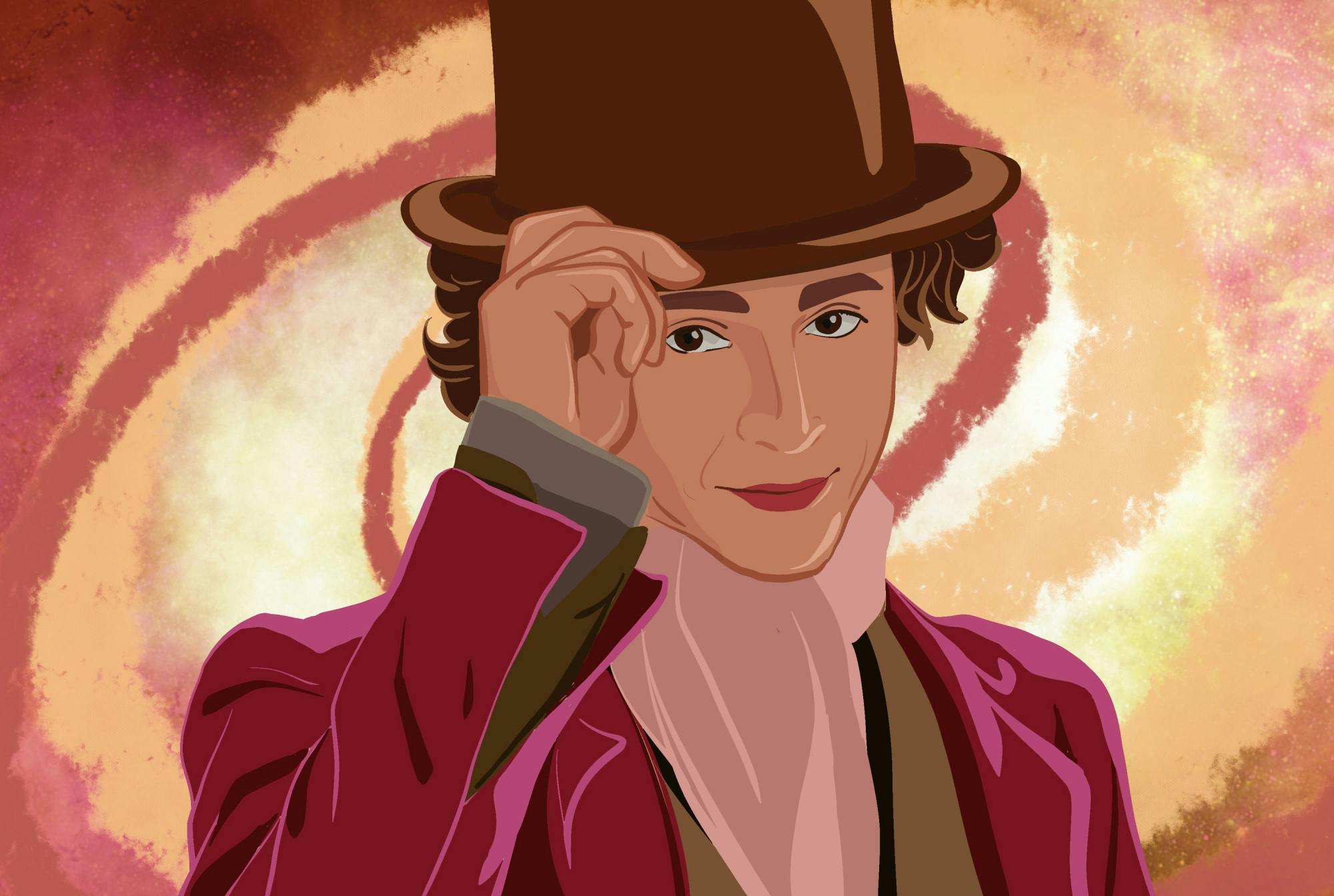Media that is based in nostalgia has gained popularity in recent years, and the new film “Wonka” is no exception. Directed by Paul King and starring Timothée Chalamet, the film reveals the backstory of the famous chocolatier with a message that speaks to the post-pandemic audiences of today.
The movie, released in December 2023, is a prequel to the classic film “Willy Wonka and the Chocolate Factory” made in 1971 starring Gene Wilder. Despite the years between the movies, “Wonka” maintains the whimsy of the original film in today's context. Throughout the film, “Wonka” uses its optimism and theatricality to remind audiences to keep dreaming despite the inevitable adversity that threatens to overcome us.
“Wonka” follows the titular character’s origin story: a young man who dreams of owning his own chocolate shop and reuniting with his mother. However, his chocolate shop dreams don’t come easy. Wonka arrives in town with a small sum of money only to find himself scammed into paying an enormous debt after failing to read the fine print of a contract at an inn. After Wonka is forced to work for the conniving but comedic innkeeper Mrs. Scrubitt, played by Olivia Colman, he forms strong friendships with the other swindled residents, such as Noodle, played by Calah Lane, a young girl who, like Wonka, also has dreams of reuniting with her lost mother.
The relationships Wonka makes are not only imperative to his goals, but are also what makes the film compelling. Wonka and Noodle’s shared adversity, sense of loss and common goal speak to audiences today who are reckoning with loneliness in the aftermath of the COVID-19 pandemic.
The sense of familial loss that the two face is strategically woven throughout the film. Theatricality, dance and song are prevalent, but a thread of sadness seems to continually juxtapose the sense of optimism.
Wonka’s relationship with Noodle also provides unprecedented insight into Wonka’s character as a young man, compared to previous iterations of the character. This unveiling of his character and the early development of his business allude to the original films, addressing the untold stories of Wonka and his relationship with his family and his passion for chocolate innovation.
As many fans of the 1971 original film know, Wonka’s chocolate is far from ordinary. In the film, his chocolate takes on a decadent, magical power, which causes people to physically float, confess feelings of love and even grow exuberantly-colored hair. Besides Wonka’s personal dream of reuniting with his mother through selling chocolate, Wonka’s chocolate creations also help improve the lives of his friends and serve as an example of Wonka’s altruistic nature.
Chocolate is used as a motif to explore how whimsy, kindness and optimism are able to coexist alongside Wonka’s sense of grief. The undercurrent of pain exists in a world that is initially drab and dreary — that is, until Wonka comes along. With his perseverance and dedication, Wonka fills an overcast world with color, providing viewers with constant visual eye-candy.
Furthermore, the film is highly theatrical. For every scene filled with adversity and struggle, there are whimsical dance numbers, nostalgic songs and moments of slapstick comedy. Chalamet’s execution of difficult choreography adds to the theatricality, with complicated footwork and heavy utilization of props. Peppered with playful trinkets and machines, the film strategically toes the line between images of childlike wonder and reminders of Wonka’s adverse situation.
The film’s ability to manage these seemingly opposite tones speaks to its complexity. It does not shy away from sadness, but that does not hinder its ability to be fun either. Its ability to explore these difficult feelings and themes, despite taking place in a fantastical universe, is what draws the audience into the movie.
“Wonka” leaves audiences feeling nostalgic but optimistic at the conclusion of the film. Maybe it’s the inclusion of timeless songs sung alongside new ones, dreary cityscapes juxtaposed with the vibrant decorum of chocolate-making worlds, or the formation of new relationships bound by the pain of lost familial bonds. But with this duality of emotion is also an unmistakable message of hope despite the near-constant inundation of setbacks that Wonka faces while he attempts to achieve his dream — something that we need reminded of more than ever.
Rating: ★★★★★




